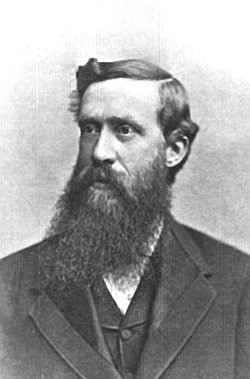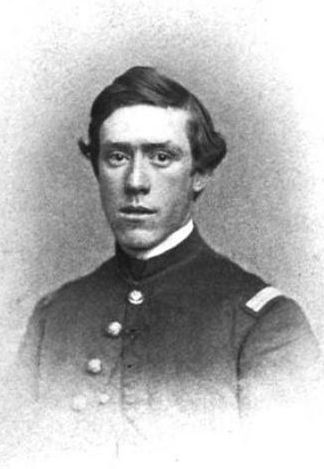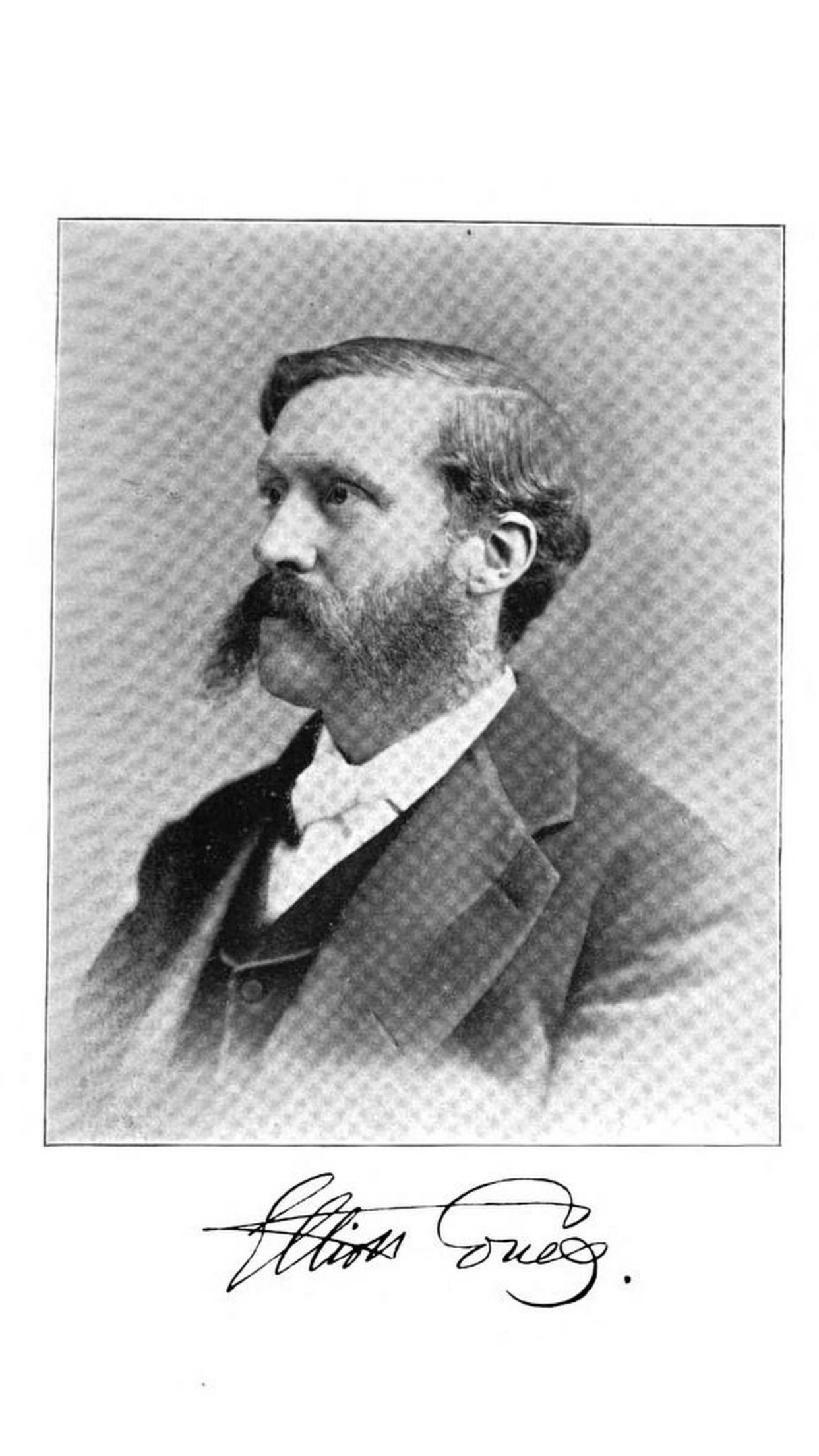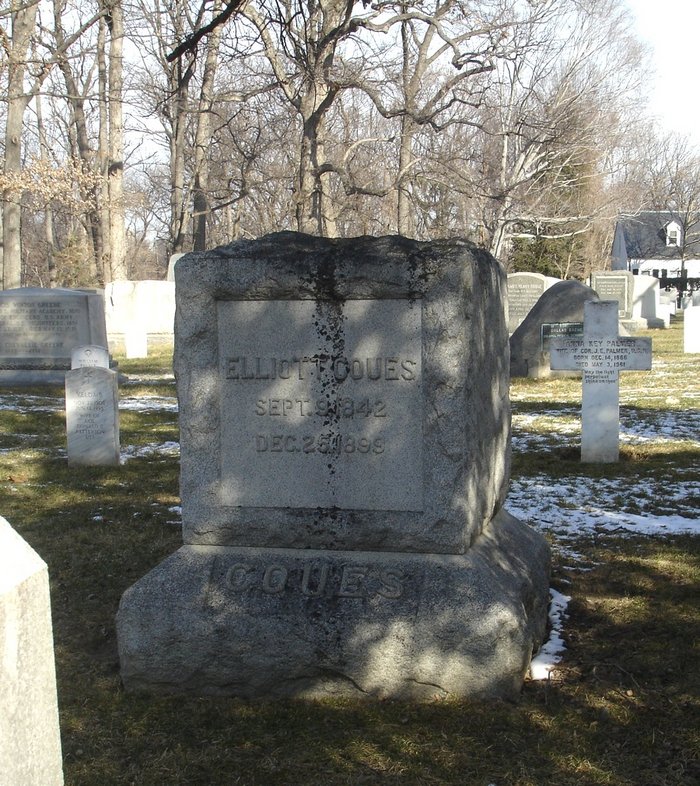Extracted from The Evening Star (Washington, D.C.) December 26, 1899 page 8
Dr. Elliott Coues died yesterday afternoon at the Johns Hopkins Hospital in Baltimore. His death was unexpected and the announcement was a shock to those who had respect for his eminent attainments as a scientist and historical writer. Last summer was spent by Dr. Coues in Arizona and New Mexico, he having accompanied an expedition to that section of the country, which was in charge of Dr. F.W. Hodge of the bureau of ethnology. It was at that time that Dr. Coues became aware of internal trouble. His condition rapidly grew worse, and while on his return east he was taken sick in Chicago and remained there for some time.
Upon arriving at his home in this city, and acting under the advice of his physician, he determined to go to the Johns Hopkins Hospital and have an operation performed. He had been in the hospital about a month. At the time of his death Mrs. Coues was at his bedside.
Dr. Coues was a man of remarkable gifts. He stood at the head of the ornithologists of this country, and his key to North American birds, which was published in 1872, is regarded as authority on that subject. It may be mentioned as rather an unusual feature of scientific books that this work was a source of steady income to the author.
Having attained eminence as a naturalist, he turned his attention to historical work, and performed a valuable service in making available much material that was still in manuscript. H was one of the editors of the Century Dictionary and, in connection with Dr. Theodor Gill, was the editor of the Osprey, a journal devoted to ornithology.
He devoted a good deal of study to the science of occultism, and as a result became interested in theosophy, and was looked upon as the head of the society in this county. A couple of years ago, however, he withdrew from the organization, and had no further connection with that cult.
Dr. Coues was born in Portsmouth, N.H., September 9, 1842, and was graduated from the Columbian University in this city in 1861. A year later he entered the United States Army as medical cadet and in 1861 was made assistant surgeon, which rank he retained until his resignation, November 17, 1881. He had received the brevet of captain for meritorious services during the war, and in 1866 was post surgeon at Charleston, S.C. He was elected professor of zoology and comparative anatomy at Norwich University, Vt., in 1869 and from 1873 to 1876 was surgeon and naturalist to the United States northern boundary commission. In 1875 he was collaborator at the Smithsonian Institution.
From 1876 until 1880 he was secretary and naturalist to the United States geological and geographical survey of the territories, and in 1877 became professor of anatomy in the National Medical College. In 1883 he was appointed professor of biology in the Virginia Agricultural and Mechanical College. He was a member of the National Academy of Sciences.
Extracted from The Evening Star (Washington, D.C.) December 26, 1899 page 8
Dr. Elliott Coues died yesterday afternoon at the Johns Hopkins Hospital in Baltimore. His death was unexpected and the announcement was a shock to those who had respect for his eminent attainments as a scientist and historical writer. Last summer was spent by Dr. Coues in Arizona and New Mexico, he having accompanied an expedition to that section of the country, which was in charge of Dr. F.W. Hodge of the bureau of ethnology. It was at that time that Dr. Coues became aware of internal trouble. His condition rapidly grew worse, and while on his return east he was taken sick in Chicago and remained there for some time.
Upon arriving at his home in this city, and acting under the advice of his physician, he determined to go to the Johns Hopkins Hospital and have an operation performed. He had been in the hospital about a month. At the time of his death Mrs. Coues was at his bedside.
Dr. Coues was a man of remarkable gifts. He stood at the head of the ornithologists of this country, and his key to North American birds, which was published in 1872, is regarded as authority on that subject. It may be mentioned as rather an unusual feature of scientific books that this work was a source of steady income to the author.
Having attained eminence as a naturalist, he turned his attention to historical work, and performed a valuable service in making available much material that was still in manuscript. H was one of the editors of the Century Dictionary and, in connection with Dr. Theodor Gill, was the editor of the Osprey, a journal devoted to ornithology.
He devoted a good deal of study to the science of occultism, and as a result became interested in theosophy, and was looked upon as the head of the society in this county. A couple of years ago, however, he withdrew from the organization, and had no further connection with that cult.
Dr. Coues was born in Portsmouth, N.H., September 9, 1842, and was graduated from the Columbian University in this city in 1861. A year later he entered the United States Army as medical cadet and in 1861 was made assistant surgeon, which rank he retained until his resignation, November 17, 1881. He had received the brevet of captain for meritorious services during the war, and in 1866 was post surgeon at Charleston, S.C. He was elected professor of zoology and comparative anatomy at Norwich University, Vt., in 1869 and from 1873 to 1876 was surgeon and naturalist to the United States northern boundary commission. In 1875 he was collaborator at the Smithsonian Institution.
From 1876 until 1880 he was secretary and naturalist to the United States geological and geographical survey of the territories, and in 1877 became professor of anatomy in the National Medical College. In 1883 he was appointed professor of biology in the Virginia Agricultural and Mechanical College. He was a member of the National Academy of Sciences.
Gravesite Details
CAPT/ASST SURG USARMY
Family Members
Advertisement
Explore more
Sponsored by Ancestry
Advertisement












